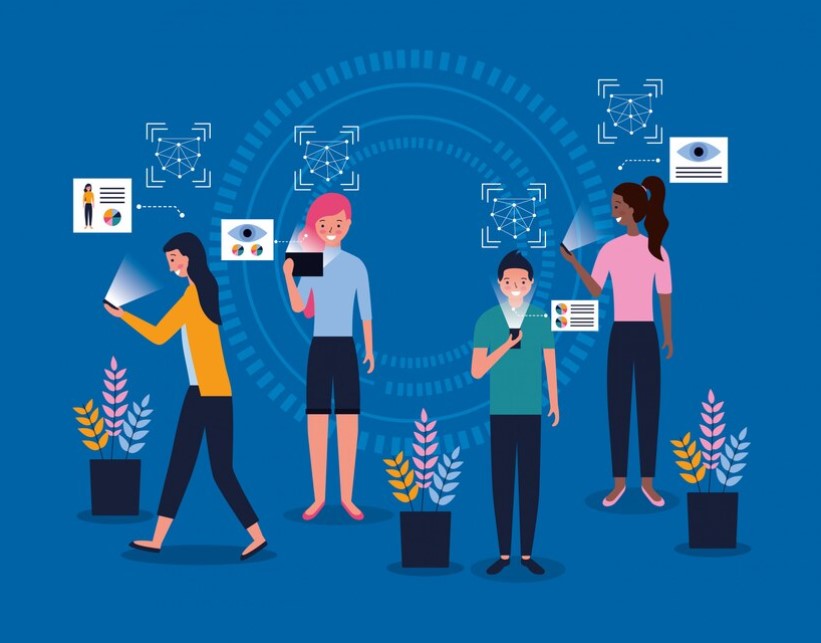The job market is rapidly evolving, as is the way we recruit and retain people. Recruitment is just one of the many areas where artificial intelligence is having a significant impact. Naturally, this raises the question of whether AI will completely replace human recruiters.
The answer is more complex than a simple yes or no, even if AI is clearly changing the hiring process. Let’s examine how hiring is changing in the era of artificial intelligence.
AI: The Powerful New Ally in Recruitment
The hiring process is already heavily reliant on AI. According to a 2025 survey, 58% of recruiters believe AI is best used for talent sourcing, while 65% of recruiters use it for recruiting. Given AI’s capacity to expedite laborious activities, this is not surprising and makes it an ideal tool for time-pressed recruiters.
AI is transforming the hiring process in the following ways:
– Automating Repetitive Tasks: AI-powered solutions excel at handling time-consuming processes such as resume screening, candidate sourcing, and interview scheduling. This automation enables recruiters to focus on strategic projects and developing true relationships with candidates.
– Better Candidate Matching: Sophisticated algorithms go through resumes and profiles to find suitable candidates for particular roles based on qualifications, experience, and possible cultural fit.
– Boosting Candidate Engagement: AI chatbots offer prompt answers to candidate inquiries, significantly enhancing the application process and reducing the workload of recruiters.
However, while AI is extremely efficient, it is not meant to replace human recruiters. Instead, it motivates them to work smarter, not harder.
AI’s Sweet Spots: Applications and Advantages
With a focus on automating repetitive tasks and improving decision quality, technology plays a multifaceted role in recruitment. Specifically, it is excellent at:
– High-Volume Screening: AI efficiently screens thousands of applications, identifying qualified candidates and freeing up valuable time for recruiters to invest in high-yield activities.
– Reducing Unconscious Bias: AI frameworks can reduce human bias by evaluating candidates objectively, promoting equitable, varied, and inclusive selection methods.
– Predicting the Future of Hiring: Artificial intelligence excels at evaluating recruiting data to discover patterns, anticipate future talent needs, and continuously improve the hiring process.
In order to spot trends, predict future talent requirements, and continuously improve the hiring process, artificial intelligence is excellent at evaluating recruitment data.
The Human Touch: Irreplaceable and Essential
Some elements of hiring will always need the human touch, even with AI’s amazing skills. Empathy, intuition, and emotional intelligence are priceless abilities that AI cannot now take on.
Human recruiters continue to be crucial in the following areas:
Emotional Intelligence and Genuine Connections
Job hunting is a deeply personal experience. During the process, candidates may feel vulnerable as they make decisions that could change their lives. Human recruiters provide empathy and understanding that AI cannot replicate. They can sense subtle emotional clues, tailor their approach to a candidate’s comfort level, and offer reassurance during stressful situations.
Deciphering Cultural Fit
Organizations are live, breathing cultures with their own values and dynamics, not merely a collection of talents. Human recruiters are excellent at assessing the intangible components of cultural fit. While AI can match technical talents, it struggles to predict whether a candidate would succeed in a certain team setting or agree with the company’s ideology. This sophisticated understanding stems from years of human experience and intuition.
The Art of Negotiation
During the last phases of hiring, sensitive discussions about pay, benefits, and other important matters are frequently included. These interactions necessitate agility, ingenuity, and a thorough awareness of both the candidate’s requirements and the organization’s limits. Human recruiters establish rapport and trust, which promotes open conversation during these sensitive discussions.
Building Trust in Executive Search
Candidates frequently rely significantly on the judgment and direction of a human recruiter when applying for senior or specialized positions. AI cannot replace the human connection and common understanding that underpin this trust. Executive applicants might be reluctant to give an AI system private information about their present positions or future goals. In these high-stakes scenarios, the privacy and individualized attention provided by a human recruiter are crucial.
The Future: Cooperation Between Humans and AI
AI and people collaborating is the way of the future in hiring, not AI vs humans. The advantages of both are combined in this cooperative approach:
AI-Driven Effectiveness
Automating tedious tasks, analyzing large datasets, and producing actionable insights to inform human decision-making are all accomplished by AI.
Human Expertise and Judgment
Building relationships, assessing cultural fit, and making strategic decisions based on AI-generated insights are the main priorities of recruiters.
This collaboration results in a more efficient, effective, and candidate-focused hiring process that produces better results.
Taking Ethical Issues Up Front
Organizations must proactively address potential ethical issues as AI becomes more popular in hiring:
Overcoming Algorithmic Bias
Careful planning and ongoing oversight are necessary for AI systems to avoid reinforcing preexisting prejudices in hiring procedures.
Protecting Applicant Privacy
Organizations must be open and honest about how they gather, use, and safeguard applicant data during the hiring process in order to preserve candidate confidentially.
Implementing AI in hiring processes in a responsible and moral manner will be made possible by tackling these issues head-on.
Conclusion
Although AI has the potential to completely transform the hiring process, human recruiters will still be needed. Rather, it will allow them to function more efficiently and strategically. Recruiters who embrace AI as a potent friend and cultivate the skills necessary to prosper in a changing environment will have the advantage in the future. By working together, we can create a future of hiring that combines human-centered values with advanced technology.
For more information, visit our website https://shelbyglobal.com/

